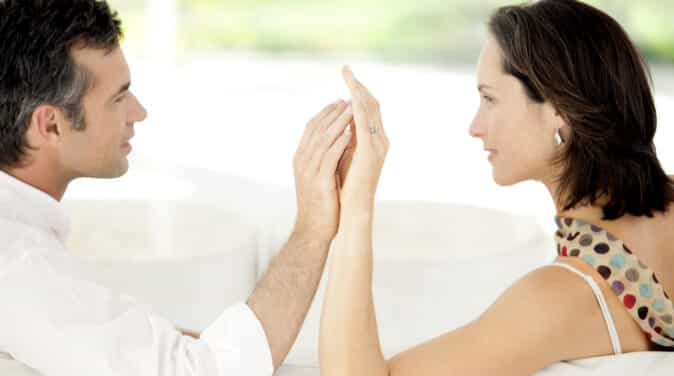Is Online Dating Safe?

- Chemistry, Understanding Men
If I told you that 464 Americans died doing something in 2013, you’d be alarmed. You know, intellectually, that 464 is a drop in the bucket in a country of 350 million people, but still, we’re talking life and death here. Something that is hurting so many innocent people must be stopped.
However, if I told you that the culprit for the mass carnage was none other than people slipping in the bathtub, you may have a different take. Ban bathtubs? Sue bathtub makers? Get government regulation to mandate suction cup mats in every tub?
464 deaths is tragic, but such solutions are preposterous. If millions of people take baths, they have to take care not to fall. It’s no guarantee – even the heartiest person has slipped in a tub – but there’s little one can do to legislate for better bathtub safety to prevent all 464 tragic incidents.
Is online dating unsafe? Or is life unsafe – while online dating is just a small subset of it?
It is through that lens that I want you to read this article about online dating safety, published in Quartz. It’s not that I’m callous about it; truly, nothing is more important than your personal safety when dating. But pieces like this bring out the skeptic in me.
Is online dating unsafe? Or is life unsafe – while online dating is just a small subset of it?
The article implies it’s online dating itself.
The Pew Research Center found that between 2008 and 2013 the proportion of American adults using dating services tripled. In Britain, attacks related to online dating increased almost six-fold over roughly the same period.
Here’s another data fragment: A 2016 study of 666 students in Hong Kong found that about half used dating apps, and those who did were twice as likely as non-users to suffer “sexual abuse” of some kind (defined on a scale that included, for example, being coerced into unprotected sex, and rape). The study didn’t prove that apps led to abuse, the authors wrote, but they found the association “alarming.” They hypothesized that app users might expose themselves more to people who are sexually coercive. The online environment could also lull users into thinking they know someone, and therefore making themselves vulnerable.
True, but somewhat misleading. Let’s look at it this way:
Learning that 40,000 Americans died in auto accidents in 2016 is harrowing. We can lament the evils of drunk driving, distracted driving, and poor public transportation options. But what if you learned Americans take 1.1 BILLION trips a day? That’s 4,015,000,000,000 per year. That’s one death for every HUNDRED MILLION car trips.
That doesn’t mean that each of those 40,000 deaths isn’t tragic. That doesn’t mean we should fail to tighten texting while driving laws. But it does mean that if you have a 99.99999999% chance of making a car trip safely, driving is relatively safe.
Online dating isn’t the problem. It’s just the medium that allows for relatively frictionless meeting.
According to this Tinder statistics link, Tinder has 10 million daily active users and has made 10 billion matches. Doesn’t it stand to reason, logically, that if that many strangers are meeting, more of EVERYTHING is happening? More texting. More flaking. More hooking up. More dates. More marriage. And yes, more sexual assault.
Online dating isn’t the problem. It’s just the medium that allows for relatively frictionless meeting. Tinder, with its GPS and right swiping, only take that to a new level. But the answers are not so much technological as much as they are practical. The answer to fewer car deaths is not to do background checks on hundreds of millions of drivers; it’s to prevent and penalize drunken and distracted driving. Similarly, we can blame IAC – owners of Match, OkCupid and Tinder for failing to police its 10 million daily active users, or we could use as much common sense to avoid being put in precarious situations.
It’s not an either/or and the suggestions in the Quartz article are thoughtful and important. I just think it’s important to frame the discussion with actual numbers that prove that, all things considered, online dating is as safe as meeting a stranger at a party. The only difference is that you meet a lot more people on Tinder than you do at parties.
Your thoughts, below, are appreciated.









Comments